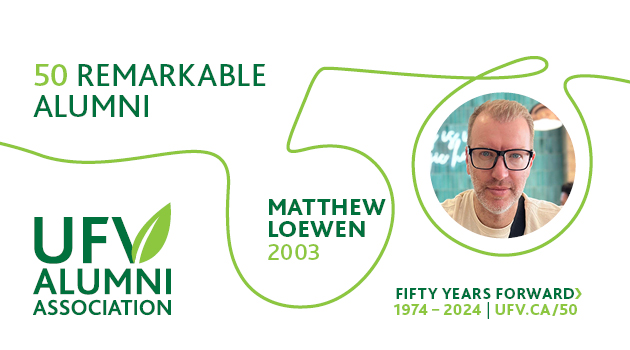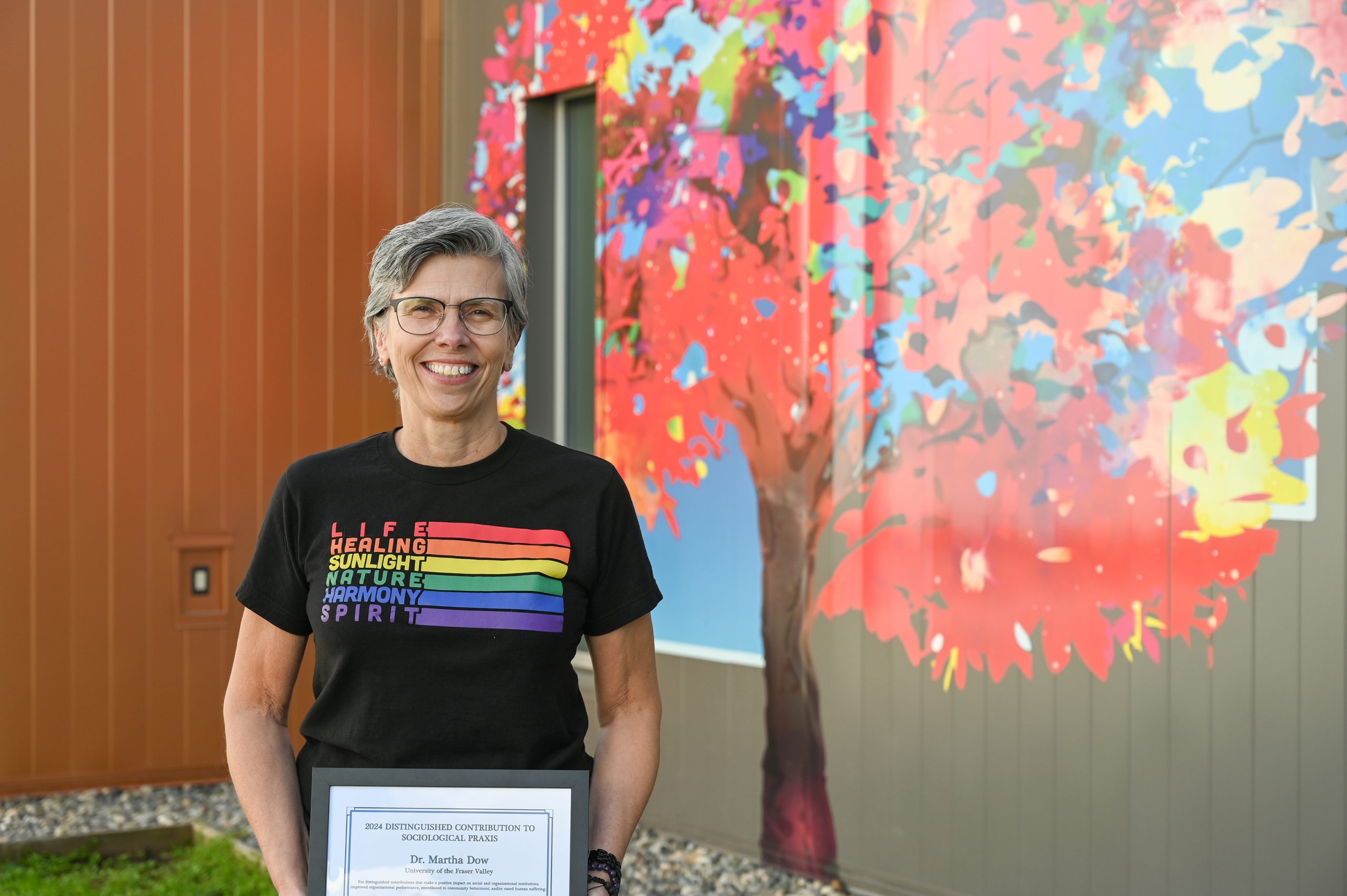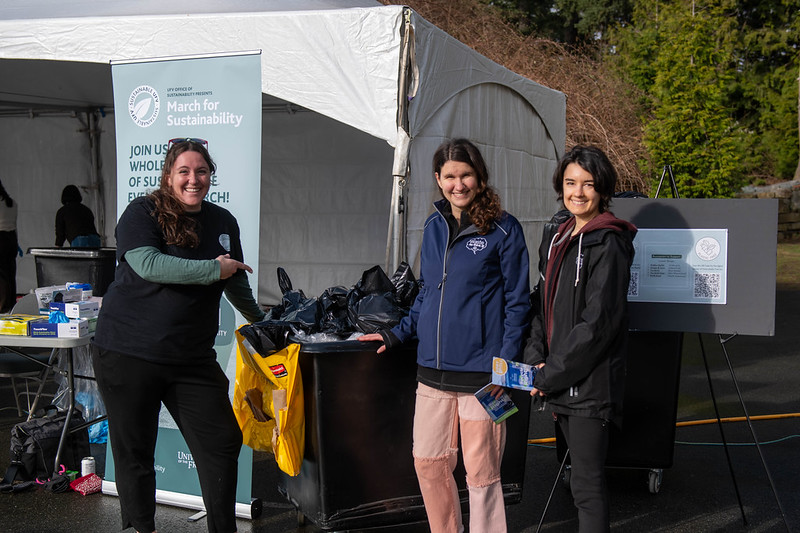Barry Moore presided over Fraser Valley College’s adolescence
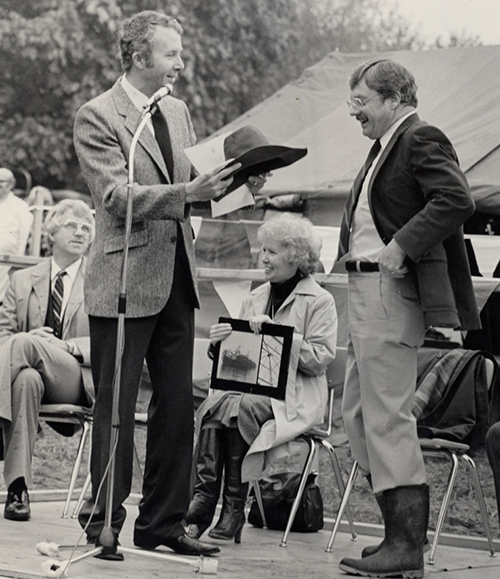
(From a telephone interview conducted in 2010 with some updates in 2018. Barry Moore passed away on Dec 1, 2018.)
Dr. Barry Moore presided over what might be termed Fraser Valley College’s adolescence.
He arrived in 1979 after his predecessor Dr. Larry Blake had guided the college from soon after its start up.
Barry was a great fan of the community college model and was eager to play a role in the further development of Fraser Valley. He arrived from a stint at Northern Lights College in Dawson Creek, so enjoyed the move to warmer climes.
“My first impression had a lot to do with the warm temperatures, but I was also impressed with how warm the welcome was from the staff, faculty, and community. “
One thing that surprised and impressed him was the open and friendly relationship in the 1980s between management and the Faculty and Staff Association. He also liked the idea of having faculty and staff in one union.
“It seemed like an awfully good idea to me to have just one union. Support staff in other places I’d seen tended to get short shrift and dragged along in second place. That wasn’t the case here.
“And right off the bat, we had a just wonderful, open relationship with the union. Kevin Busswood (the president of the FSA) and I hit it off and wanted to work together. There was never a lack of trust, even when things got tough during negotiation times.
“The fact that the union representatives wanted to work with management and be part of the planning and process was rather refreshing. Kevin and I would have lunch together regularly and update one another on what was happening. I think that saved us a lot of anxiety and animosity.”
Another part of what made FVC special for Barry was the general sense of open dialogue.
“You’d walk down the hall for a coffee and get into three conversations. There was always somebody yakking about something and lots of ideas grew out of those spontaneous conversations. And union people were involved in a lot of that dialog and willing to speak with me. When I moved on to Fanshawe College in Ontario I made an attempt to drop into the union office to say hello, and was told that I wasn’t welcome there. What a difference from FVC.”
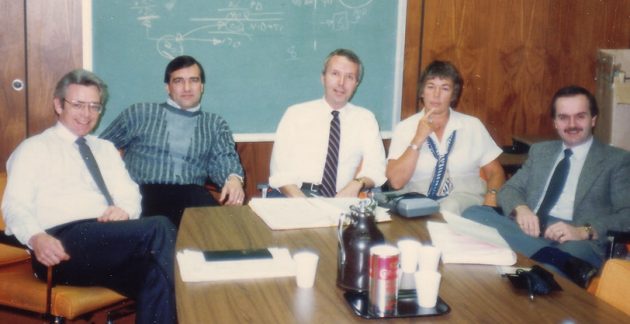
While he’ll take some credit for being an amiable and cooperative manager himself, he stressed that the entire management team took a similar approach to employer-employee relations.
“The whole group made a major contribution to the positive culture at Fraser Valley College. And my experience there was so great. There were a lot of neat folks among the support staff who really helped make the place special too. My assistant, Marlys Southwell, was just a hoot.”
Barry feels that FVC was “on track” and well established when he arrived, but one way that he did create a legacy was in his creation of a theatre program, based at the old Yale Road Chilliwack campus. During his time the nascent theatre program was based in converted classrooms in the old “motel” building. (The purpose-built new theatre opened on the Chilliwack Yale Road campus in 1995, long after his tenure. It is no longer in use as a theatre by UFV as the program has moved to Abbotsford.)
He also made sure that he regularly consulted with the college region’s smaller communities, such as Agassiz and Hope.
“I’m a community-driven person, so I delved into what the community desired, and theatre was at the top of the list. I think a college theatre program is a terrific vehicle for interaction with the community. We brought in some very political and topical plays to what had been quite a sheltered community.”
The continuing studies division, with its willingness to put on courses about alternative healing methods and different religions, also caused a stir in the community.
Barry, who is a United Church minister, even got in hot water once in a while.
“I have an interest in Islam, so I offered a seminar or two on it, but boy did I get scorched by some of the religious right.”
Even though his time as principal coincided with the tough budget years of the early 1980s, during the Social Credit government’s restraint program, Barry is proud to have “got some programs started and buildings built.”
Barry was president during the development of FVC’s first “permanent” campus, the Abbotsford campus on King Road. (Chilliwack’s former Yale Road campus was older, but was intended to be only a temporary campus, as was Marshall Road, which UFV continued to lease in the mid 2000s after several years break from having a presence there.)
“We knew we were outgrowing Marshall Road and it was a relief to have secured funding for the new campus. We chose the location south of the freeway because it provided good freeway access as well as being relatively close to town. It was great to get those nice new facilities built, but on the opening day, my son Paulo, who hadn’t seen the campus before, remarked that the colour scheme for the exterior was diaper-rash pink. “
What really sticks out in Barry’s mind more than two decades after his departure are the students, and the opportunities for growth that the college provided, especially to upgrading students.
“Academic upgrading should remain a very high priority as far as I’m concerned. I’ve seen so many students who don’t think that they have a chance, but with help and their own determination they come through and do amazingly well.
“Some of the stories from our students were very heroic. I remember one student who was brought in by his parents, and it was thought that he was incapable of doing much, but they did some testing on him, and he turned out to be really bright. When he spoke at graduation he told the story of finally learning how to read, and being able to read his street’s name, and he stated proudly: ‘it became my street that day.’ ”
During his tenure, Fraser Valley College was solidly ensconced as a two-year community college. The university college movement, which saw Malaspina, Okanagan, and Cariboo transformed into four-year institutions in 1989, followed by FVC after massive community lobbying in 1991, hadn’t come into public consciousness yet.
“My sense of the college during my term was that it was a soundly working college that was trying to grow, but was also determined to stay rooted to its communities. I can’t say I thought about the idea of it becoming a university. I came from Ontario, where there is a huge divide between colleges and universities, and universities are very elitist. Eventually myself and my colleague at Douglas College, Principal Bill Day – who were both dyed-in-the-wool local community college enthusiasts — started to notice that some of the other colleges seemed like they couldn’t wait to get away from being responsive to their communities and become more ivory-tower like. This was a bad trend, in my opinion.”
Observing from afar now that he’s back in Ontario, Barry says he hears that UFV is responding well to the challenge of balancing community college roots and its new university status.
“What concerns me is that the structure of the traditional university model, when it gets imposed on these new universities, can cause division, between faculty and support staff, and between allegedly superior and inferior programs. The dilemma for me as I observe the growth and change at Fraser Valley is that I’m a community person at heart. I want the local post-secondary institution to be a resource for the folks that live in those communities, so I hope the university can hold onto that as a priority.”


